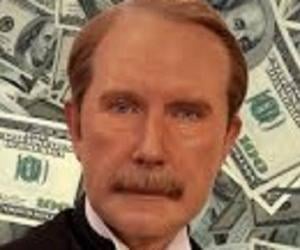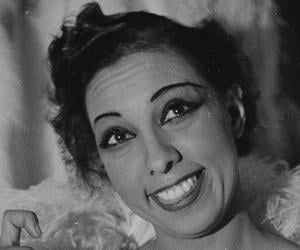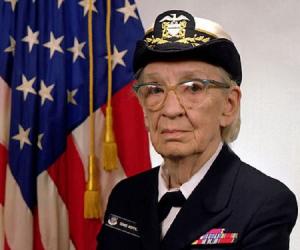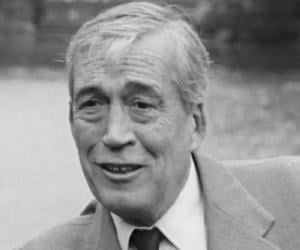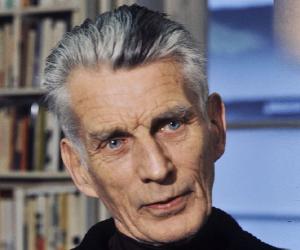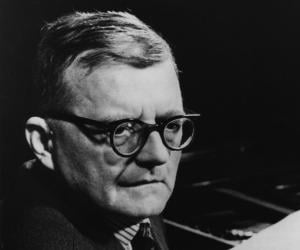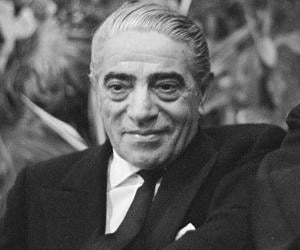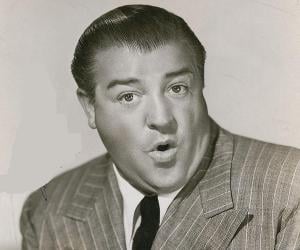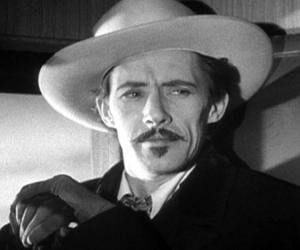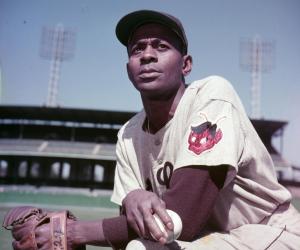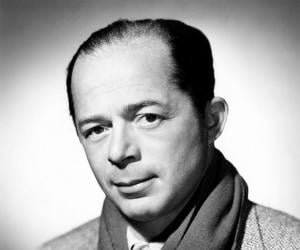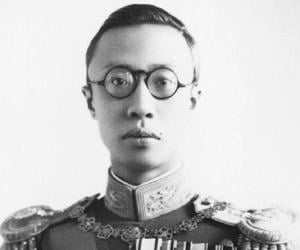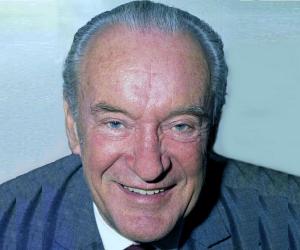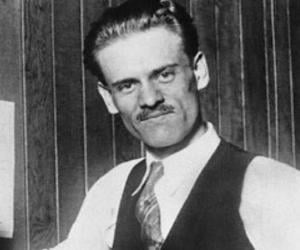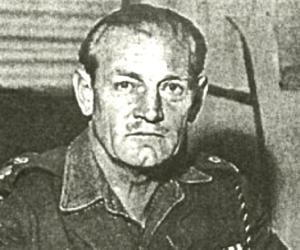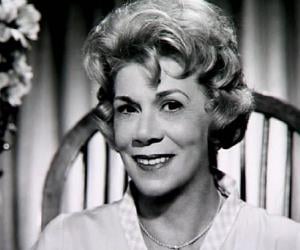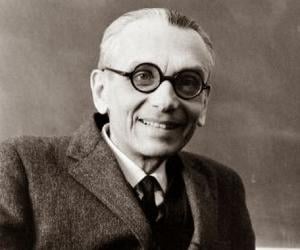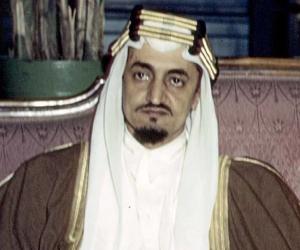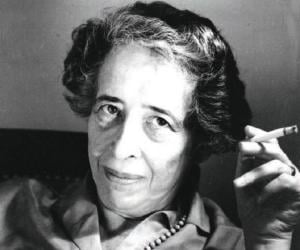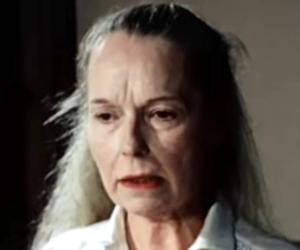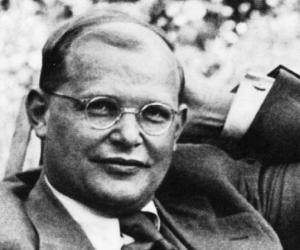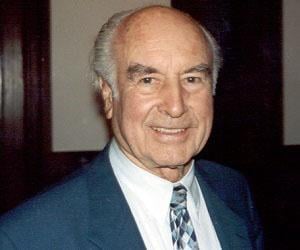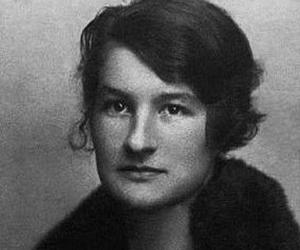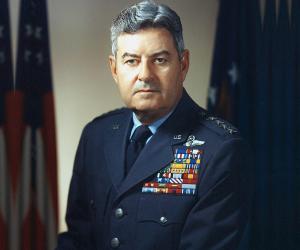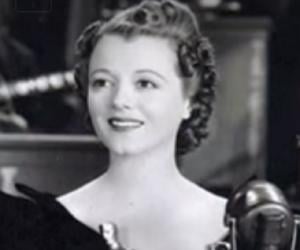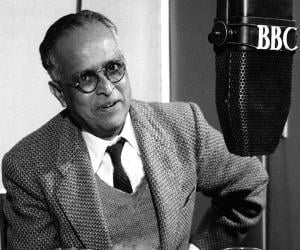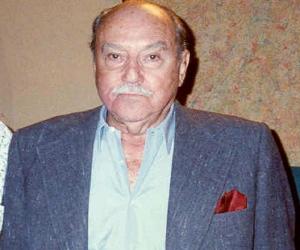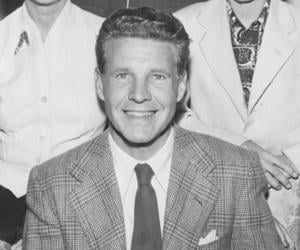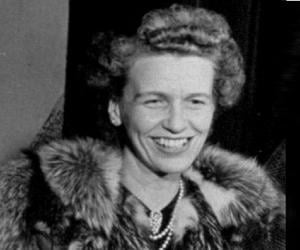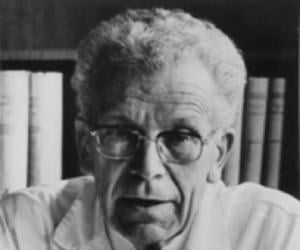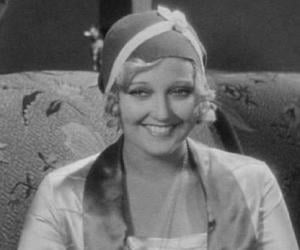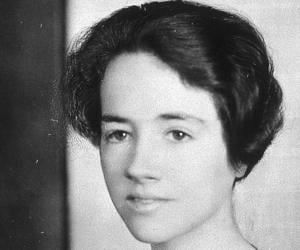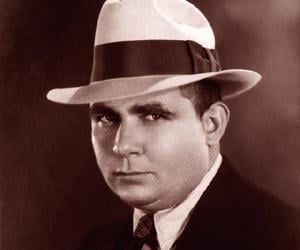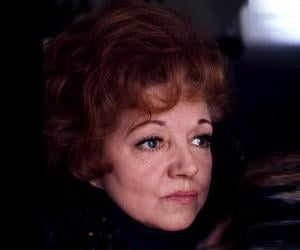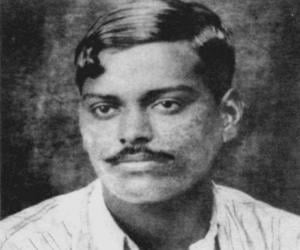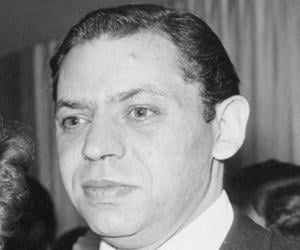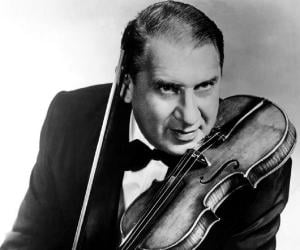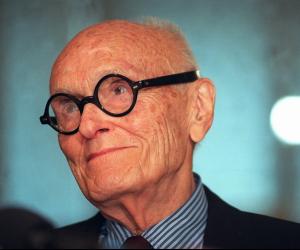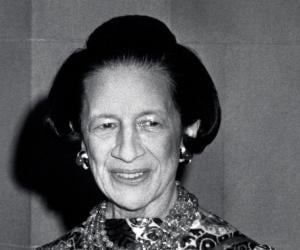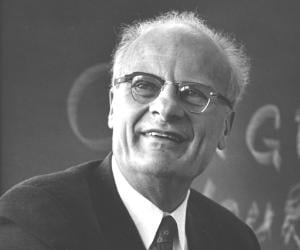Director/screenwriter John Huston is known for making his films with nominal editing and featuring novel adaptations and themes of religion, colonialism, and war. He is known for his Academy Award-winning direction in The Treasure of the Sierra Madre, and also appeared as an actor in films such as The Cardinal.
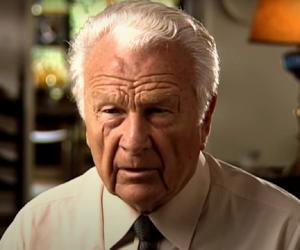
Samuel Beckett was a legendary Nobel Prize-winning Irish postmodernist and minimalist playwright and author, regarded as a prominent figure of the "Theatre of the Absurd.” He is best known for the play Waiting for Godot and for his tragi-comic themes and black comedy. He was also the Saoi of Aosdána.
Dmitry Shostakovich was a Soviet and Russian pianist and composer. Widely regarded as one of the 20th century's major composers, Shostakovich's music is characterized by ambivalent tonality, elements of the grotesque, and sharp contrasts. He composed 15 symphonies during his lifetime and most of his work came under Joseph Stalin.
A Greek shipping magnate who was one of the world's richest men at one point, Aristotle Onassis held the world's largest privately-owned shipping fleet at the peak of his career. He was involved in the privatization of the Greek national airlines as well. He had liaisons with many famous and beautiful women and was married to Jacqueline Kennedy.
Lou Costello was a comedian best known for his comedy routine Who's on First?, which he performed alongside Bud Abbott. During the Second World War, the comedy duo was one of the highest-paid and most popular entertainers in the world. In 2009, he was inducted into the New Jersey Hall of Fame.
John Carradine is considered one of the most famous character actors in Hollywood history. With an extensive career spanning almost six decades, he became known for his roles in horror films. He holds 351 film and TV credits and is among the most prolific English-speaking actors of all time. Many of his descendants are also actors.
Legendary baseball pitcher Satchel Paige was part of the MLB and the Negro League Baseball. The National Baseball Hall of Fame inductee began his career playing for the Chattanooga Black Lookouts and later played for teams such as the Cleveland Indians. He was the American League’s first black pitcher.
Billy Wilder was an Austrian-born American film producer, screenwriter, and director. Widely considered one of the most versatile and brilliant filmmakers of Classical Hollywood cinema, Wilder became the first person to win Oscars as a screenwriter, director, and producer for his 1960 film The Apartment.
Puyi served as the final emperor of China's last imperial dynasty, The Qing dynasty. After Manchuria was invaded by Japan, Puyi became a puppet at the hands of the Japanese and was chosen as the emperor of the puppet state of Manchukuo. He then signed many edicts, given to him by the Japanese, including the one that made slavery legal.
George Sanders was a British actor, music composer, singer-songwriter, and author. Characterized by his smooth bass voice and heavy English accent, Sanders often portrayed sophisticated but villainous roles. For his contribution to the film and TV industry, George Sanders was honored with a couple of stars on the Hollywood Walk of Fame.
Better known as Mad Jack or Fighting Jack, British Army officer Jack Churchill was an iconic example of a person fighting wars on his own terms. He popularized carrying swords and bagpipes to battles and killed his enemies with his longbow. He inspired a comic strip and several books, too.
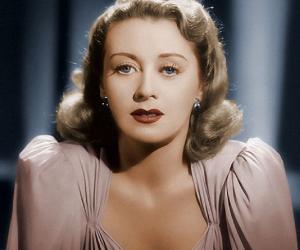
Joan Blondell was an American actress whose film and TV career spanned over 50 years. She is perhaps best remembered for her portrayal of Annie Rawlins in the 1951 historical drama film The Blue Veil, which earned her an Academy Award nomination for Best Supporting Actress.
Hailed as one of the greatest logicians since Aristotle, Kurt Gödel was Austrian-born American mathematician, logician, and philosopher, who earned international stardom for his incompleteness theorem. Also credited with developing a technique called Gödel numbering, he later started working on Mathematical Platonism, a philosophical theory that failed to attract wide acceptance.
Faisal of Saudi Arabia was King of Saudi Arabia from 1964 to 1975. He was the son of King Abdulaziz and his wife, Tarfa. During his father’s reign, he was given numerous responsibilities of political significance. After coming to power, he implemented a series of modern reforms and issued a decree for the total abolition of slavery.
Hannah Arendt was a political theorist. Widely regarded as one of the 20th century's most prominent political thinkers, Hannah Arendt's articles and books have had a significant influence on philosophy and political theory. Her life and work inspired the 2012 biographical drama film, Hannah Arendt. Her work has also inspired several biographies written by popular authors.
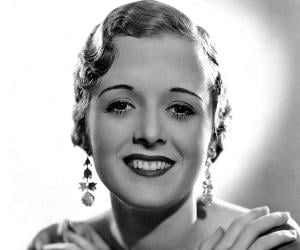
Mary Astor was an American actress best remembered for her portrayal of Brigid O'Shaughnessy in the 1941 film noir The Maltese Falcon. During an illustrious career that spanned several decades, Mary Astor overcame personal difficulties and achieved great success, eventually winning an Oscar under the Best Supporting Actress category for her performance in the 1941 drama film The Great Lie.
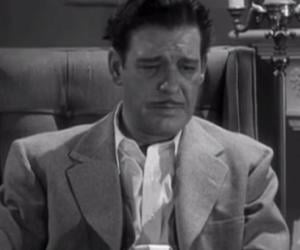
Swiss chemist Albert Hofmann was the first known person to synthesize the psychedelic effects of lysergic acid diethylamide (LSD). Interested in science from a young age, he studied chemistry at the University of Zürich. As a chemist, he conducted several significant studies and authored more than 100 scientific articles and books. He was a recipient of the prestigious Scheele Award.
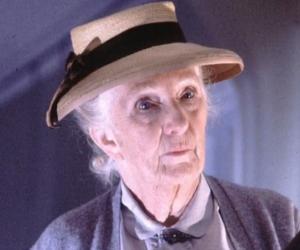
Janet Gaynor was an American actress whose performances in 7th Heaven, Sunrise: A Song of Two Humans, and Street Angel earned her the Academy Award for Best Actress in 1929, making her the first and only actress to have received one Academy Award for multiple film roles. Gaynor was one of the biggest box-office draws during the silent film era.
Remembered as one of the greatest authors of Indian literature in English, R. K. Narayan created the iconic character Swami and related his experiences set in the fictional town of Malgudi. The Sahitya Akademi and Padma Vibhushan winner was also the brother of cartoonist R.K. Laxman.
Anna Roosevelt Halsted was an American writer and newspaper editor. The daughter of Eleanor Roosevelt and Franklin D. Roosevelt, Anna played an important role during World War II, serving as her father's key advisor. After her marriage, Anna moved into the White House and served as First Lady of the USA as per her parents' request.
Anne Morrow Lindbergh was an American aviator and writer. She is best remembered for her exploratory flights along with her husband and pioneer aviator, Charles Lindbergh. Anne was the first woman to earn a US glider pilot license in 1930. In 1996, Anne Morrow Lindbergh was inducted into the National Women's Hall of Fame.
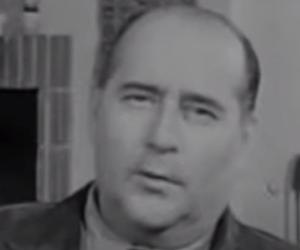
One of the pioneers of neo-realism, Italian filmmaker Roberto Rossellini was part of the French nouvelle vague movement. Born to the man who had set up Italy’s first cinema, Rossellini later grew up to make films such as Rome, Open City. He was also known for his scandalous affair with Ingrid Bergman.
Chandra Shekhar Azad joined India’s freedom struggle against the British after being deeply affected by the Jallianwala Bagh massacre. Born Chandra Shekhar Tiwari, he declared himself as Azad when arrested in connection with Gandhiji’s non-cooperation movement. He shot himself to death to escape being held captive by the British.
Philip Johnson was an American architect who organized the Modern architecture's first exhibition at the Museum of Modern Art in 1932. A highly influential and respected architect, Johnson was honored with the prestigious AIA Gold Medal in 1978. The following year, he was honored with the first Pritzker Architecture Prize.
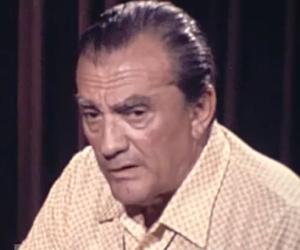
Born to Duke Modrone, Luchino Visconti belonged to one of the most affluent families of Italy. He was also one of the pioneers of neo-realism and created masterpieces such as Senso and Rocco and His Brothers. A chain smoker, he was rumored to have had 120 cigarettes per day.
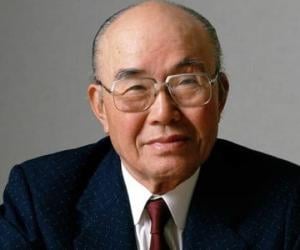
Soichiro Honda was a Japanese industrialist and engineer. He is credited with establishing the world-renowned automobile manufacturer, Honda Motor Co., Ltd. He is also credited with overseeing the company's growth from a wooden shack manufacturing unit to a multinational conglomerate manufacturer of motorcycle and automobile. Soichiro Honda was made an inductee of the Automotive Hall of Fame in 1989.
Diana Vreeland was a French-American editor and columnist who worked for popular fashion magazines like Vogue and Harper's Bazaar. From 1963 to 1971, she served as the editor-in-chief of Vogue. In 1964, she was inducted into the International Best Dressed List Hall of Fame. Diana Vreeland’s life and career inspired the 2011 documentary Diana Vreeland: The Eye Has to Travel.
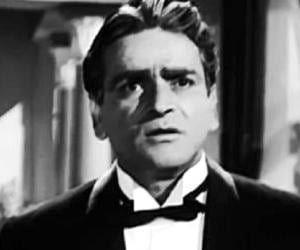
Padma Bhushan- and Dadasaheb Phalke Award-winning legendary actor and filmmaker Prithviraj Kapoor is known to be one of the pioneers of Hindi cinema. The patriarch of the Kapoor family of Bollywood, he also established Prithvi Theatres and later played the iconic role of Akbar in Mughal-e-Azam. He was also a Rajya Sabha MP.
A physiology professor’s son, Hans Bethe had shown immense talent in math as a child. The German-American theoretical physicist and Cornell professor was a pioneer of quantum physics and later won the Nobel Prize for Physics for his research on stellar nucleosynthesis, or the formation of energy in stars.
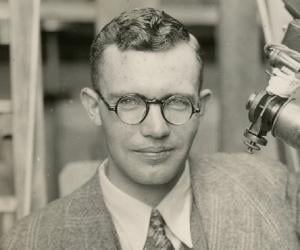
Though he wasn’t formally educated in astronomy, Clyde Tombaugh was immensely interested in the subject since childhood and had built his own telescope after high school. He grew up to discover Pluto, then regarded as the ninth planet but later declared a "dwarf planet," and many other celestial bodies.
